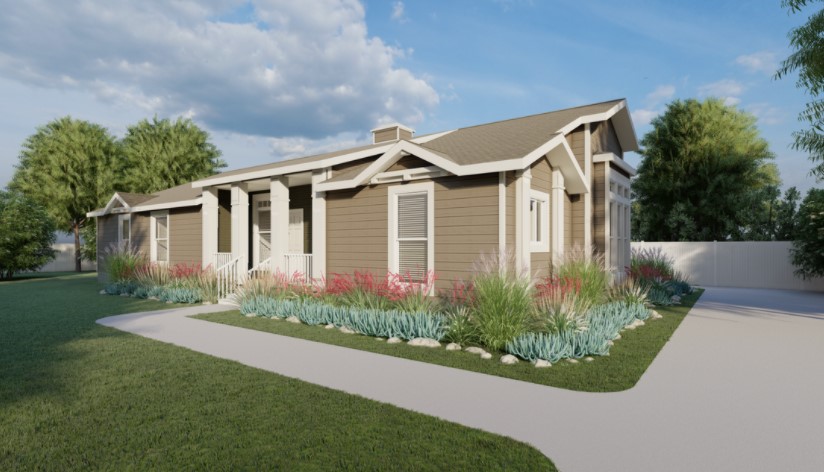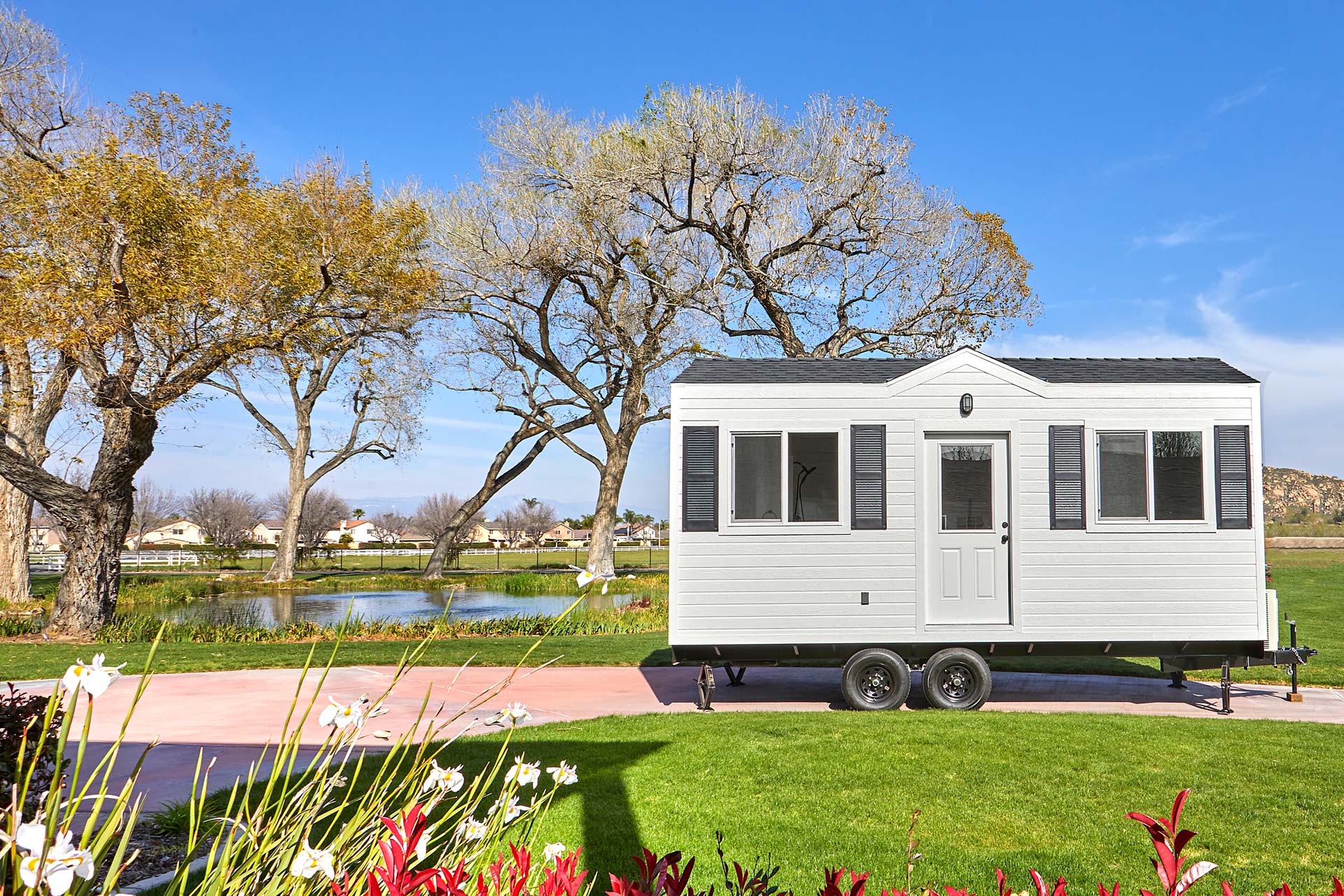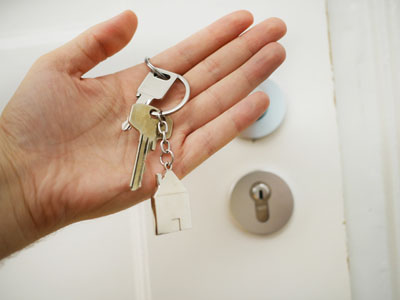FAQ
A manufactured home (formerly known as a mobile home) is built to the Manufactured Home Construction and Safety Standards (HUD Code) and displays a red certification label on the exterior of each transportable section. Manufactured homes are built in the controlled environment of a manufacturing plant and are transported in one or more sections on a permanent chassis.
Mobile homes also known as trailers are homes on wheels that were built prior to 1976 with little to no Government regulation. They mostly looked like modern day campers with an exposed trailer coupler and wheels that make the home easily movable. Manufactured homes are homes built entirely in the factory under a federal building code administered by the U.S. Department of Housing and Urban Development (HUD code). They may be single or multi-section. The underneath steel frame stays on the house and the home can be set on both a concrete foundation or on blocks and tie downs. Modular homes are homes built off-site. A modular home is sectional prefabricated home that consists of multiple sections called modules. It is built to local building codes, the steel frame underneath comes off and it has to be put on a permanent concrete foundation. Modular Homes cost more than Manufactured Homes and the building process takes several months more due to modular plans having to be approved by the state and an engineer whereas Manufactured Homes don't require that. The benefit to Modular Homes is that they are appraised against site-built homes so in areas where there are appraisal issues you can get a loan and their resale value can be higher.
While a manufactured home can be moved after its initial placement, it is neither common nor advisable to do so. Relocation will require a professional transporter; never try to move the home yourself. Cost is another consideration in moving the home. Besides transport expenses, other expenses can include, dismantling the home, utility hook-up, setup on the new site, a new foundation, among others.
There is a variety of financing options available to help you purchase a manufactured home. Down payments and loan terms can range from 3.5% to 20% of the manufactured home’s sales price, and loan terms of 15 to 30 years. If you are buying the home and land together, or plan to place the home on land you already own, some financial institutions offer construction loans with similar interest rates as traditional mortgages to help you complete your project. If you are purchasing you manufactured home and placing it in a manufactured home park or it will be a second unit on your land that currently has a primary home on it, the home will probably be financed as a personal property manufactured home loan, usually with a somewhat higher interest rate. FHA and VA loans are available to manufactured home buyers. These types of loans may offer lower interest rates or lower down payments. They require more paperwork during the approval process and may take longer for approval than a conventional loan.
Manufactured homes come with many of the features that you would find in a site-built home. You can choose from 100s of floor plans and can even customize the layout and dimensions of your home. May basic and elaborate finishes are available, from vaulted ceilings, high flat ceilings, Granite, Quartz, Avonite, interior drywall, fully equipped modern kitchens, spacious bedrooms with walk-in closets, and bathrooms with a variety of tub and shower options. You may also select from a variety of exterior options and siding materials, including wood, hardboard, stucco, or vinyl siding.
Manufactured homes are by far the most affordable option available to home buyers looking to build a custom home. Excluding the cost of land construction costs for a new manufactured home are far lower than on a comparable site-built home. Today’s manufactured homes offer the quality construction, modern amenities and the lifestyle you are seeking at a price that fits your budget!
Finding the right land is critical to your project. Finding flat developable land that has close access to water and electricity will make your project a lot more affordable. Sites like www.landsearch.com can help you get a head start on finding land that is right for you as well as finding a local real estate agent that can help.
Manufactured homes appreciate in value just like site-built houses. Start building equity instead of pouring rent money down the drain. You will get the investment and tax advantages that only come with owning your own home.
No! Manufactured homes are the only housing in America built to a national code. manufactured homes are constructed in a factory environment that is not subject to weather conditions that can impact a home built on site. Energy efficiency and fire safety are just two of many qualities of manufactured home construction that are superior to a typical site built home.
Delivery within a 100 mile radius is included in the cost of your home. The purchaser is responsible for the expense of any additional miles beyond the radius of 100 miles as well as additional expenses necessary to deliver the home. These expenses include additional equipment and manpower required to access the installation site and place the home on the site.
In California a manufactured home, can be placed on any lot zoned for a single-family dwelling and is only subject to the same architectural standards that other homes in the area are responsible for meeting.
All manufactured homes in the State of California are covered by a 12-month warranty provided by the manufacturer and dealer of your home.
Many consumers are unaware of the California Use Tax, though it has been around since 1935. The law states that everyone who buys goods elsewhere that will be used, consumed or enjoyed inside the state is liable to pay a use tax, even when the out-of-state retailer does not charge or collect sales tax. Yes, you will be responsible to pay the California Use Tax even if your out-of-state retailer did not account for it. For more information about the California Use Tax visit the Board of Equalization website at www.boe.ca.gov.






